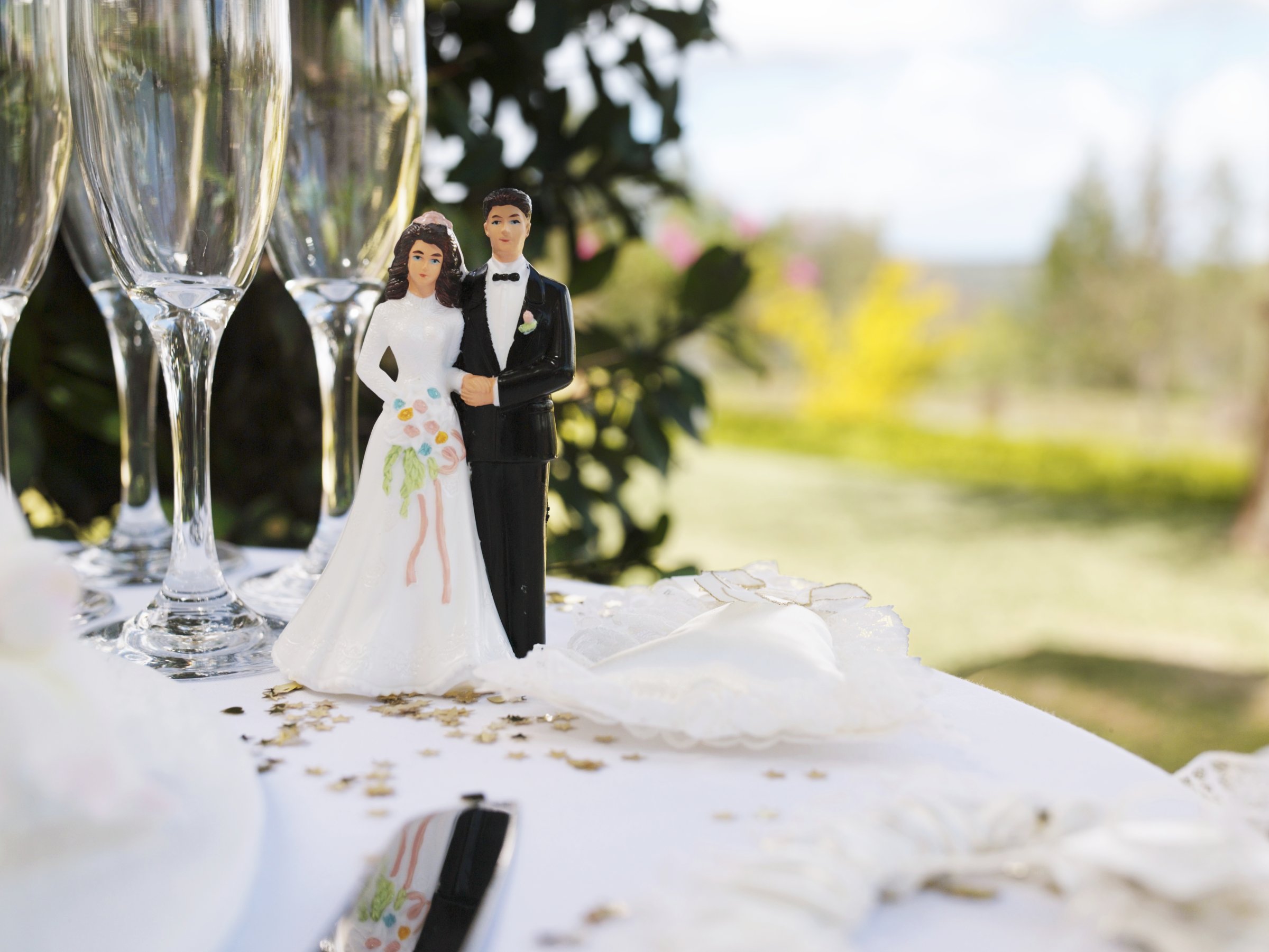
When I got married, I decided to take my wife’s last name. This choice didn’t seem like such a big deal, and it still doesn’t. It’s a free country, getting freer all the time—at least when it comes to marriage. But according to a recent analysis, more people who get married are keeping their last names. The catch is, half of those people are grooms.
A New York Times Upshot survey shows that although more women are keeping their names, a lot more women still change their names than don’t. When they get engaged, many women wonder, “Should I keep my name? Hyphenate it? Bump it to the middle like Hillary Clinton did? And whose name will the kid have?” Most men probably don’t even consider these options unless they’re asked, usually by their fiancées.
If women have become more emancipated in their thinking about maiden names, it seems men have not. The Times didn’t even bother to mention men. It seems that this macho tradition is something that even feminist guys have trouble letting go of.
My name-change turned out to be one of the most fraught conversations in our wedding planning, up there with the size of the guest list. Not the talk or two with my wife, who casually accepted my proposal to take her name. But her father, a European Jew, was baffled, while my mother, a Midwestern liberal, was troubled. I tried to make it clear to her and my dad that my choice didn’t reflect on my love for them.
If you’ve ever planned a wedding, you already know that tradition is a lot more emotional than rational. I admit that I had cold feet about getting married. It wasn’t about my fiancée, who was (and is!) a great partner; it was the cultural baggage of the institution. In the past, a woman taking her husband’s last name marked her as property, and the exchange of her father’s name for her husband’s was part of a business transaction. Maybe her father threw in some cattle, too. But the concept of marital contracts has waned since then, prenups aside, so that the question of a woman’s surname feels vestigial.
Taking my wife’s name was a tiny gesture, personal yet public, my way of taking a social position on a cultural institution. I like to joke that changing my name is a feminist statement—Smash the Patriarchy!—and sure, that’s part of it. My wife and I have upended a few gender roles: She’s a full-time lawyer, I’m the stay-at-home dad who does the housework, shuttles our kid to her extracurriculars, and writes while she’s at school.
At the time, taking my wife’s name was a small, prank-like act of subversion. So I got a kick when I heard a few weeks ago that the husband of actor Zoe Saldana had taken her name. She said that she had tried to talk him out of it because she was worried that it would mean he was emasculating himself. I think that’s more revealing than his righteous rejoinder, “Ah, Zoe, I don’t give a s–t.”
I’m glad to hear that more women are retaining their given name. If we can learn anything from the Supreme Court decision to legalize same-sex marriage, it’s that marriage is not some monolith of tradition. As our culture evolves, our customs must keep up, or what are they good for?
More Must-Reads from TIME
- Why Trump’s Message Worked on Latino Men
- What Trump’s Win Could Mean for Housing
- The 100 Must-Read Books of 2024
- Sleep Doctors Share the 1 Tip That’s Changed Their Lives
- Column: Let’s Bring Back Romance
- What It’s Like to Have Long COVID As a Kid
- FX’s Say Nothing Is the Must-Watch Political Thriller of 2024
- Merle Bombardieri Is Helping People Make the Baby Decision
Contact us at letters@time.com